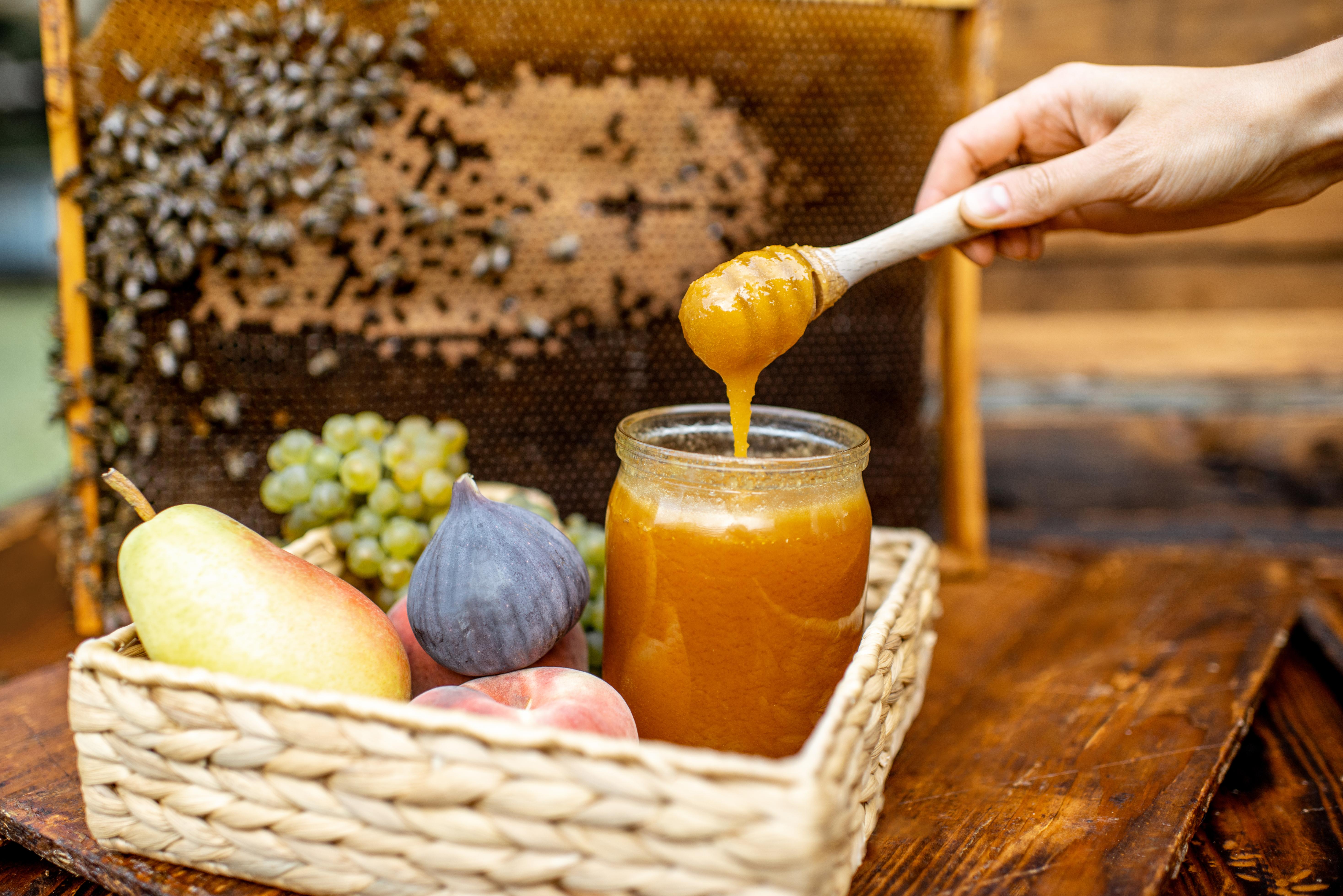10 Ways Artificial Sweeteners Wreak Havoc On Your Gut Health
Artificial sweeteners have long been hailed as the saviors of those with a sweet tooth, promising the indulgence of sugary delights without the caloric backlash. These sugar substitutes, found in everything from diet sodas to sugar-free gum, have infiltrated our diets under the guise of a healthier alternative. However, beneath their zero-calorie allure lies a complex interaction with our gut health that has only recently come to light. The gut, often referred to as our "second brain," plays a crucial role in overall health, influencing everything from digestion to the immune system. As we delve into the shocking truths about artificial sweeteners, we will uncover how these seemingly harmless additives could be silently wreaking havoc on our gut microbiome, leading to a cascade of health issues that extend far beyond the digestive tract.
1. The Gut Microbiome: A Delicate Ecosystem

Our gut microbiome, a bustling community of trillions of microorganisms, is essential for maintaining health. This ecosystem consists of bacteria, fungi, and viruses that work symbiotically to aid digestion, produce vitamins, and protect against pathogens. The balance of these microorganisms is crucial; any disruption can lead to dysbiosis, a state associated with numerous health problems, including obesity, diabetes, and inflammatory bowel diseases. Artificial sweeteners, though non-nutritive, can disrupt this delicate balance. Studies have shown that these sweeteners can alter the composition and function of the gut microbiota, potentially leading to an overgrowth of harmful bacteria and a decrease in beneficial ones. Examining how artificial sweeteners interact with the gut microbiome provides insight into the health issues that may follow.
2. The Sweetener Spectrum: Understanding the Different Types

Artificial sweeteners come in various forms, each with unique properties and potential impacts on gut health. The most common types include aspartame, sucralose, saccharin, and stevia. Aspartame, used in many diet sodas, breaks down into phenylalanine, aspartic acid, and methanol, which can affect gut bacteria. Sucralose, found in products like Splenda, is not absorbed by the body and passes through the digestive system, potentially altering gut flora. Saccharin, one of the oldest artificial sweeteners, has been linked to changes in gut microbiota composition. Even natural sweeteners like stevia, though considered safer, can impact the gut in significant ways. Understanding the chemical structures and specific interactions of these sweeteners with the gut microbiome can help inform healthier choices.
3. The Impact on Metabolism and Insulin Sensitivity

One of the most surprising discoveries about artificial sweeteners is their potential to affect metabolism and insulin sensitivity. Despite being calorie-free, these sweeteners can trigger metabolic changes that mimic those caused by sugar. Research suggests that artificial sweeteners may induce glucose intolerance by altering the gut microbiota. This, in turn, can affect insulin sensitivity, increasing the risk of type 2 diabetes. The gut plays a pivotal role in glucose metabolism, and any disruption can have far-reaching consequences. Exploring the mechanisms by which artificial sweeteners influence metabolic processes highlights the paradox of consuming sugar substitutes to avoid metabolic diseases, only to potentially increase their risk.
4. Inflammation: The Silent Consequence

Chronic inflammation is a silent contributor to many diseases, including heart disease, cancer, and autoimmune disorders. Emerging evidence suggests that artificial sweeteners may contribute to inflammation by disrupting the gut microbiome. An imbalance in gut bacteria can lead to increased intestinal permeability, often referred to as "leaky gut," allowing harmful substances to enter the bloodstream and trigger an inflammatory response. Additionally, the altered microbiota may produce inflammatory compounds that exacerbate this condition. Examining the link between artificial sweeteners, gut microbiota imbalance, and inflammation sheds light on how these additives may contribute to chronic health issues.
5. The Gut-Brain Axis: A Two-Way Street

The gut and brain are intricately connected through the gut-brain axis, a bidirectional communication network that links the emotional and cognitive centers of the brain with peripheral intestinal functions. Artificial sweeteners can disrupt this communication by altering the gut microbiome, potentially affecting mood, behavior, and cognitive function. Some studies suggest that changes in gut bacteria can influence neurotransmitter production, leading to anxiety and depression. Investigating the impact of artificial sweeteners on the gut-brain axis reveals potential psychological and neurological effects of these sugar substitutes.
6. Weight Gain: The Ironic Outcome

Many individuals turn to artificial sweeteners in an effort to lose weight, yet paradoxically, these additives may contribute to weight gain. By altering the gut microbiome, artificial sweeteners can affect appetite regulation and energy storage. Some research indicates that these sweeteners may increase cravings for sweet and high-calorie foods, leading to overeating. Additionally, changes in gut bacteria can influence the body's ability to extract energy from food, potentially leading to weight gain. Exploring the complex relationship between artificial sweeteners, the gut microbiome, and weight management challenges the notion that these sugar substitutes are a foolproof solution for weight loss.
7. The Role in Allergies and Autoimmune Disorders

Artificial sweeteners may also play a role in the development of allergies and autoimmune disorders. By disrupting the gut microbiome, these additives can affect the immune system, which relies on a healthy gut for proper function. Dysbiosis can lead to an overactive immune response, increasing the risk of allergies and autoimmune diseases. Additionally, the inflammatory compounds produced by an imbalanced gut microbiota can exacerbate these conditions. Investigating the potential link between artificial sweeteners, gut health, and immune-related disorders underscores the importance of maintaining a balanced gut microbiome for overall health.
8. The Environmental Impact on Gut Health

Beyond individual health concerns, artificial sweeteners also pose environmental challenges that indirectly affect gut health. These sweeteners are not fully metabolized by the human body and often end up in wastewater systems, where they can persist and disrupt aquatic ecosystems. This environmental presence can lead to the proliferation of antibiotic-resistant bacteria, which can then enter the human food chain and impact gut health. Highlighting the broader environmental implications of artificial sweetener use emphasizes the interconnectedness of human health and environmental stewardship.
9. Navigating the Sweetener Minefield: Making Informed Choices

With the potential risks of artificial sweeteners laid bare, consumers face the challenge of making informed dietary choices. Reducing artificial sweetener consumption and choosing healthier alternatives can support gut health. Natural sweeteners like honey, maple syrup, and coconut sugar, though not calorie-free, offer nutritional benefits and are less likely to disrupt the gut microbiome. Incorporating probiotic-rich foods and prebiotics into the diet can also help maintain a healthy gut balance. Empowering readers to make informed decisions about their sweetener consumption prioritizes gut health and overall well-being.
10. The Future of Sweeteners: Innovations and Alternatives

As awareness of the potential health impacts of artificial sweeteners grows, researchers and manufacturers are exploring new alternatives that prioritize gut health. Innovations in food technology are leading to the development of sweeteners derived from natural sources that mimic the taste of sugar without its negative effects. These include monk fruit extract, allulose, and tagatose, which are gaining popularity as healthier sugar substitutes. Highlighting emerging alternatives and ongoing research aims to develop gut-friendly options that satisfy the craving for sweetness without compromising health.
Sweet Choices for a Healthy Gut

The allure of artificial sweeteners as a guilt-free indulgence is overshadowed by their potential to disrupt gut health. The intricate relationship between these sugar substitutes and the gut microbiome reveals a complex web of metabolic, inflammatory, and neurological effects that extend far beyond the digestive tract. As we become more aware of the impact of our dietary choices on gut health, it is crucial to prioritize natural, whole foods and minimize the use of artificial additives. By making informed choices and embracing alternatives that support a balanced gut microbiome, we can enjoy the sweetness of life without compromising our health.